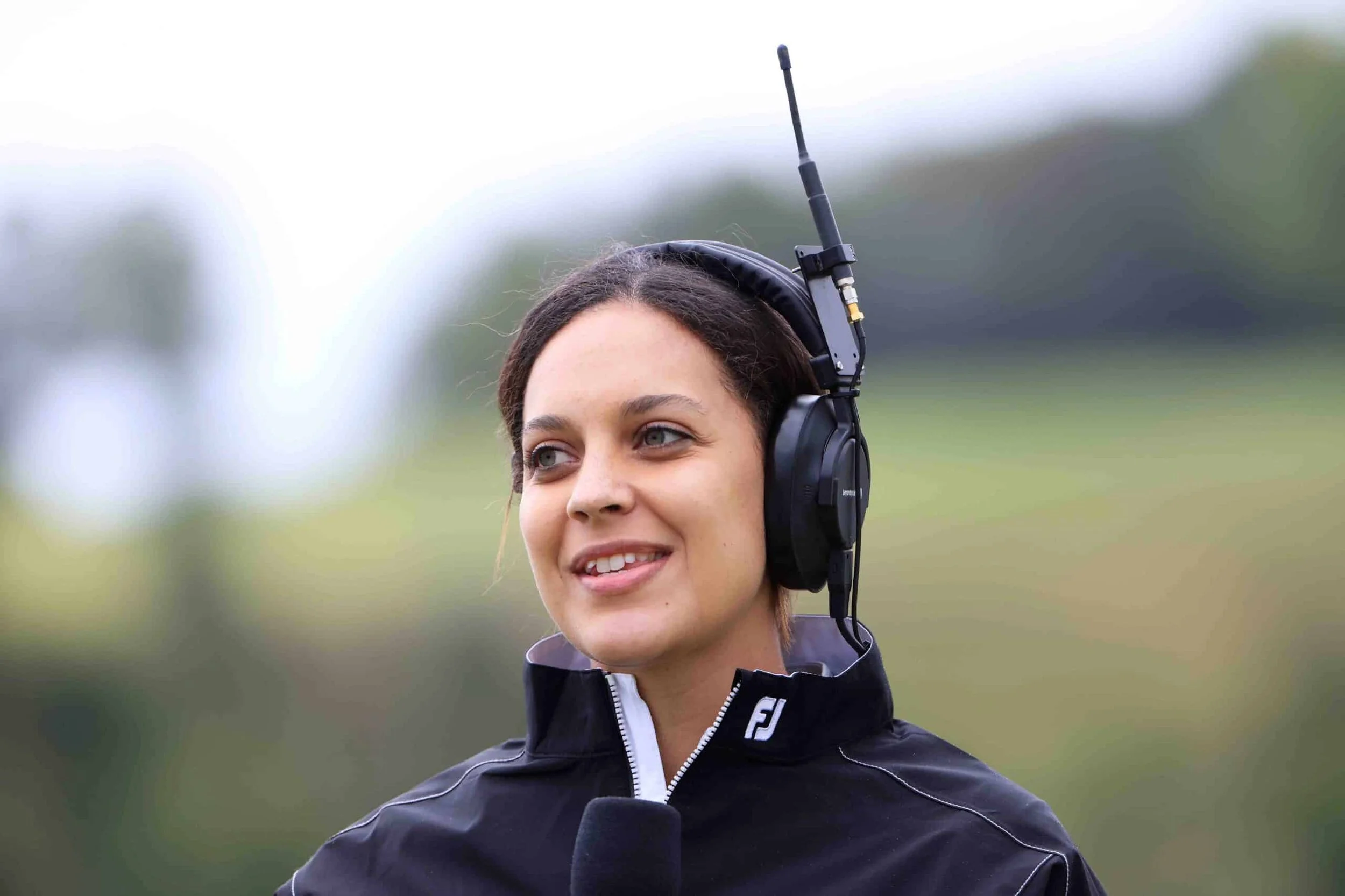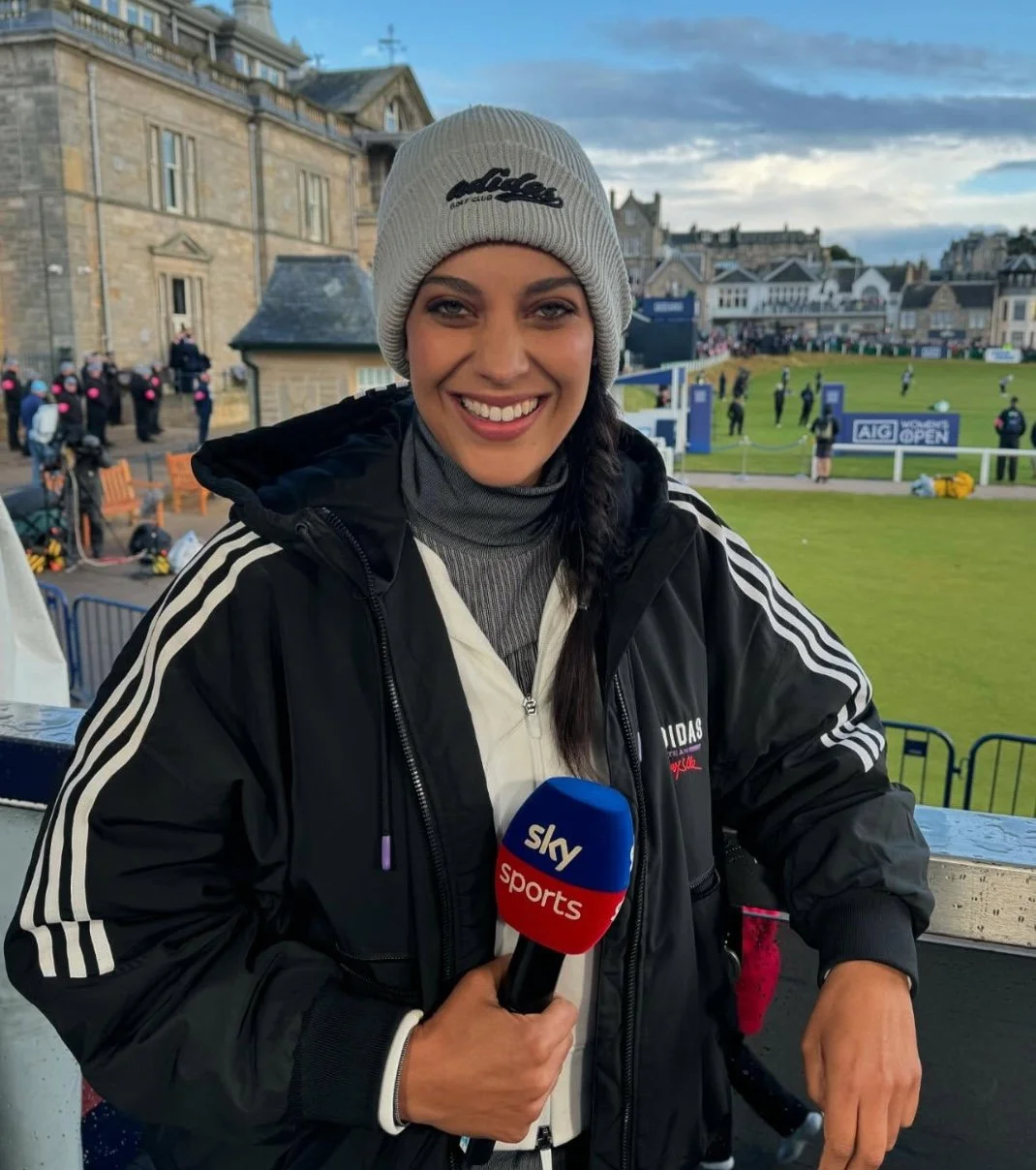
INTERVIEW
How can golf continue to boom in participation? Henni Zuel has the answers
Former pro golfer and current Sky Sports presenter Henni Zuel has long been dedicated to introducing golf to youngsters from all backgrounds, as well as helping children in a non-sporting context too
Henni Zuel has transformed from an aspiring tour professional into a flourishing broadcaster for Sky Sports Golf, although this wasn’t the intention.
Injuries derailed a promising career in the women’s professional game, but Zuel found her way behind the camera, working with Tiger Woods on GolfTV and now Sky Sports where she is part of the presenting furniture.
While broadcasting wasn’t always on the cards, helping less fortunate youngsters to develop life skills and a path into golf has always been at the peak of Zuel’s interests.
She is the European Ambassador for Underrated Golf, an initiative which provides access and opportunities for people from all communities in the game. It was founded in America by US basketball icon Steph Curry.
Zuel also works with Children on the Edge, a children’s charity she was introduced to by sports psychologist Chris Shambrook, through which she has also grown close to British athletics legend Dame Kelly Holmes.
While Zuel acknowledges that golf is growing in popularity and still in a boom, she is also passionate about what she would like to see added to the sport to create increased participation and opportunities for people of all backgrounds.
“If we talk about golf specifically, it is a mirror of life, and it teaches young people resilience, how to deal with setbacks, how to motivate yourself ”
Where did your passion come from to become involved in Underrated Golf?
“Weirdly, even as a teenager, one of my big drivers was to give back. I always wanted to make it in golf, so that I could give back to other people playing golf, kids playing golf. It was one of the things that when my career was cut short, I was the most devastated about and I remember talking to my sports psychologist at the time and being like, I'm never going to fulfil this dream of being able to help people.
“And he was like, ‘We actually can’. He introduced me to Dame Kelly Holmes, who does amazing work through her trust, mentoring young kids with athletes and their skill sets. And so I started doing that in my early 20s, mentoring predominantly throughout the end of my playing career. I also worked at the Mintridge Foundation, which does incredible things like mentoring school-aged children through sport and athletes. Now I have just started working with a charity called Children on the Edge, which is helping the most marginalised kids in the world.
“It's always been something that's really close to my heart, and then a very good friend, Will Lowery, is involved in Underrated on the US side, and through extended conversations we found that we 100% aligned with the mission to be able to provide golf playing opportunities, and education opportunities for kids that wouldn't otherwise have them. He brought me on board as a European ambassador, and it was just an immediate fit.
“I've been blown away actually, working with the organisation and their heart is in such the right place. So for example, the kids basically don't pay for anything; they just have to get themselves to the venue, and then they don't pay for accommodation or food or entry fees, everything's covered for them and a parent. I think over the years we've had 50 or so kids go through to get college educations, because we have college scouts at the Curry Cup finale.
“It's amazing to see the footprint now, and have graduates come back and tell their stories. As an English golfer, to be able to bring Underrated to Europe and to see the amazing work they've done in the US continued in Europe, and to give kids playing opportunities and seeing the response from the parents and the kids as well, it’s really cool. I'm really grateful to be involved.”
“I think sport in general - we're talking about golf, but I think sport in general gives so much to young people. It teaches them so many life skills. If we talk about golf specifically, it is a mirror of life, and it teaches them resilience, how to deal with setbacks, how to motivate yourself. As an individual sport, you have to self-motivate; you are solely responsible for your outcome and destiny. I think we learn all those things in golf especially. And then, in terms of upward mobility, it's so key because how many of us have witnessed deals that are done on the golf course and company golf days? It makes such a big difference in any career that you go into. And there are a million different careers just within the golf industry that it can unlock for you, especially for young girls. I don't know many female golf photographers and female journalists are few and far between.
“There’s this plethora of opportunity within the golf industry and in other industries that golf can unlock.”
“To be able to pick your child up and then go to the golf club and then spend that amount of money on golf balls, range balls, and then take your child to all the competitions. It's incredibly tough.”
Numbers on Henni
2
She was a 2 handicap
at 13 years of age
She turned professional in
2008
At the age of
13
she was the youngest player to compete on the Ladies European Tour
She played for Europe at the Junior
Ryder Cup in
2007
She was born on January 6,
1990
What would you say are the main barriers to participation in golf?
“Ultimately, there’s the cost, right? There's the cost of transportation, there's the cost of equipment, there's the cost of clothing, there's the cost of even range balls. Nowadays, it's like the cheapest is £5 a bucket, that's insane. And as a parent, seeing the cost of other activities and sports, like gymnastics, for example, it's £30 a term, that's just not happening with golf.
“So if you're a parent, and we are in a cost of living crisis, and you have to choose a sport for your child to go to, golf is probably going to be very low down on your list. Transportation is also a massive issue. Because if you're a parent who’s working, to pick your child up from school at 3.30 pm is difficult enough for a lot of people. To be able to pick your child up and then go to the golf club and then spend that amount of money on golf balls, range balls, and then take your child to all the competitions. It's incredibly tough.
“I think sometimes a lot of people look at a high level and say, ‘This is the problem, we need to grow the game through marketing’. If you just put a minibus on from housing estates to golf courses and back again, and provided food, that would exponentially grow the game, and it's literally as simple as that. Also, take away dress code. I know I say this all the time, but again, if I'm going to choose between a £30 shirt, or £30 to send my child to gymnastics, I know what I'm choosing, or food on the table, or fuel for the house.
“I think sometimes golf can be really disconnected from the day-to-day way that people actually live in a real world sense. I could talk about this for ages, but I think it's actually quite simple, and we need to just ask people. For example, if you want people from lower socio-economic backgrounds, ask them what they need. If you want more women, literally ask them what they need, and the answer is probably for it to be more child friendly, an inclusive space, so I feel comfortable. And if my child has five meltdowns, I need that to be okay, and I need chips and pizza to be available and equipment and not to be judged.
“No one actually asks the people that they should ask. I'm generalising here, right? There are people doing great things in the sport, and those are the people that should be applauded, and that I gravitate towards. But I'm generalising - it's often decided on a committee by people who are perhaps a little out of touch with the realities of modern life.”
While golf is booming, is there another sport it could look to and copy?
“I think cricket, just off the top of my head, looking outwardly, I don't really know too much about cricket, but just from what I've seen, I've got friends in the industry creating different formats, more accessible. Rugby as well; I play touch rugby but I'm never going to play actual rugby. I would maybe be interested in the Hundred, that's caught my eye. I would never watch a test game. If someone bought a cricket bat and a ball, would I give it a go? Yeah, probably. But maybe I'm not going to join a cricket club.
“So I think anytime that we can almost dilute the sport into more accessible, bite-sized chunks, that's going to be a positive. I think we can learn from other sports in that regard.
“I know we're always very precious about 18 holes, and that is incredible and I love that sometimes and it has a good place, but in the US now, they've got these incredible nine-hole venues which are really smart and really cool, and it's like a cafe in the middle, and we don't really have that as much here. The sport is booming and when I think about growing the game, I think about on a mass level globally - but it's doing great things and I don't want to detract from that and sound like I'm moaning whatsoever. I just want to think of it in terms of mass numbers of participation in the sport, and longevity of the sport, which obviously we all want for generations to come.
“Things like TopGolf are revolutionary. Mini golf, amazing. Mini golf in bars, amazing. I think all these little things all help to build the bigger picture of golf and participation.”
The Rose Ladies Series is a great initiative for young female golfers. As a young female amateur or professional, how hard is it to attract sponsors and endorsement?
“It’s tough, isn't it, because it's so expensive, it's around £20,000 a year on average, or minimum, really, to compete at that level. You do need that covered and you’ve got to get lucky. You’ve got to be in the right place at the right time and know the right person. And there are some amazing, generous people and companies out there.
“People do play golf at that level despite not perhaps having the means themselves. But the Rose Ladies Series has been phenomenal, because if you can sharpen your competitive teeth, if you have one opportunity, let's say, on an LET Access (a developmental tour that serves the Ladies European Tour) event as an amateur, I'm thinking of one girl I know, and specifically she doesn't come from a well-off background, works for everything, has a couple of small sponsors, has the odd LET Access Series opportunity here and there, but you don't want to just rock up to that as your one competitive event.
“So, to have the Rose Ladies Series events that you can drive to at top level golf courses and sharpen your teeth and learn and earn a bit of money, and you get players on there from the LET and the LET Access, that's really invaluable. Justin and Kate know that because they've lived and breathed it and they’ve done an amazing job. And the more opportunities players can have like that, the better.”

Get golf business insights straight to your inbox
Sign up for the first look at the latest news, features, exclusive interviews and podcast episodes with our monthly newsletter



